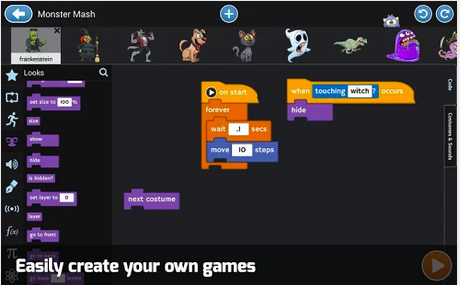
As technology becomes increasingly integrated into our daily lives, the demand for skilled programmers and coders continues to grow. In response, educators and parents are seeking innovative ways to introduce coding skills to children at a young age. One such approach that has gained significant popularity is the use of educational games. These games not only make learning coding fun and engaging but also provide a solid foundation for future technological advancements. In this article, we will explore the rise of educational games for teaching coding skills and discuss their benefits and impact on the tech industry.
The Importance of Learning Coding Skills
In today’s digital era, coding is a critical skill that opens up a world of opportunities for individuals. Coding skills empower students to understand how technology works and equips them with problem-solving abilities that are transferable across various fields. From developing websites and mobile applications to navigating complex software systems, coding is a fundamental skill in the modern job market. Recognizing the significance of coding skills, educational institutions and organizations are increasingly embracing the use of educational games to make the learning process more accessible and enjoyable.
The Advantages of Educational Games
Educational games have revolutionized the way coding is taught to students, particularly in the tech niche. The interactive nature of these games offers several advantages over traditional teaching methods:
1. Engaging and Interactive Learning
Unlike lectures or textbooks, educational games create an immersive learning environment where students actively participate and apply coding concepts. The gamified nature of these platforms motivates learners, making the process both enjoyable and memorable. Through interactive challenges and puzzles, students can experiment with code, test their knowledge, and receive immediate feedback.
2. Hands-On Problem Solving
Educational games enable students to face real-world coding problems and find solutions independently. This hands-on approach encourages critical thinking, logical reasoning, and creativity. By providing a platform to practice coding skills in a safe and supportive environment, these games build confidence and help learners develop their problem-solving abilities.
3. Progress Tracking and Customization
Many educational games come equipped with progress-tracking features, allowing students and educators to monitor their growth. This tracking system enables tailored learning experiences, as educators can identify areas where students may be struggling and provide timely assistance. Additionally, students can set goals and track their own progress, fostering a sense of achievement and motivation.
The Impact on the Tech Industry
The rise of educational games for teaching coding skills has had a profound impact on the tech industry. It has helped bridge the growing demand for skilled programmers and coders, ensuring a pipeline of talent for future advancements. By introducing coding concepts in a fun and accessible manner, educational games have made coding appealing to a wider audience, breaking down barriers and stereotypes surrounding the field.
Furthermore, these games have nurtured an interest in STEM (Science, Technology, Engineering, and Mathematics) fields from an early age. As more students develop coding skills through educational games, the tech industry can benefit from a diverse pool of talent, driving innovation and creativity. By creating a strong foundation in coding, students are more likely to pursue further education and careers in technology, leading to a robust workforce in the ever-evolving tech industry.
Conclusion
Educational games have emerged as a powerful tool in teaching coding skills, transforming the way we introduce programming concepts to students. By combining interactive learning, hands-on problem solving, and progress tracking, these games make coding engaging, enjoyable, and accessible to a wider audience. With their positive impact on the tech industry, educational games serve as a stepping stone for future advancements and ensure a generation equipped with the skills necessary to thrive in the digital age.


